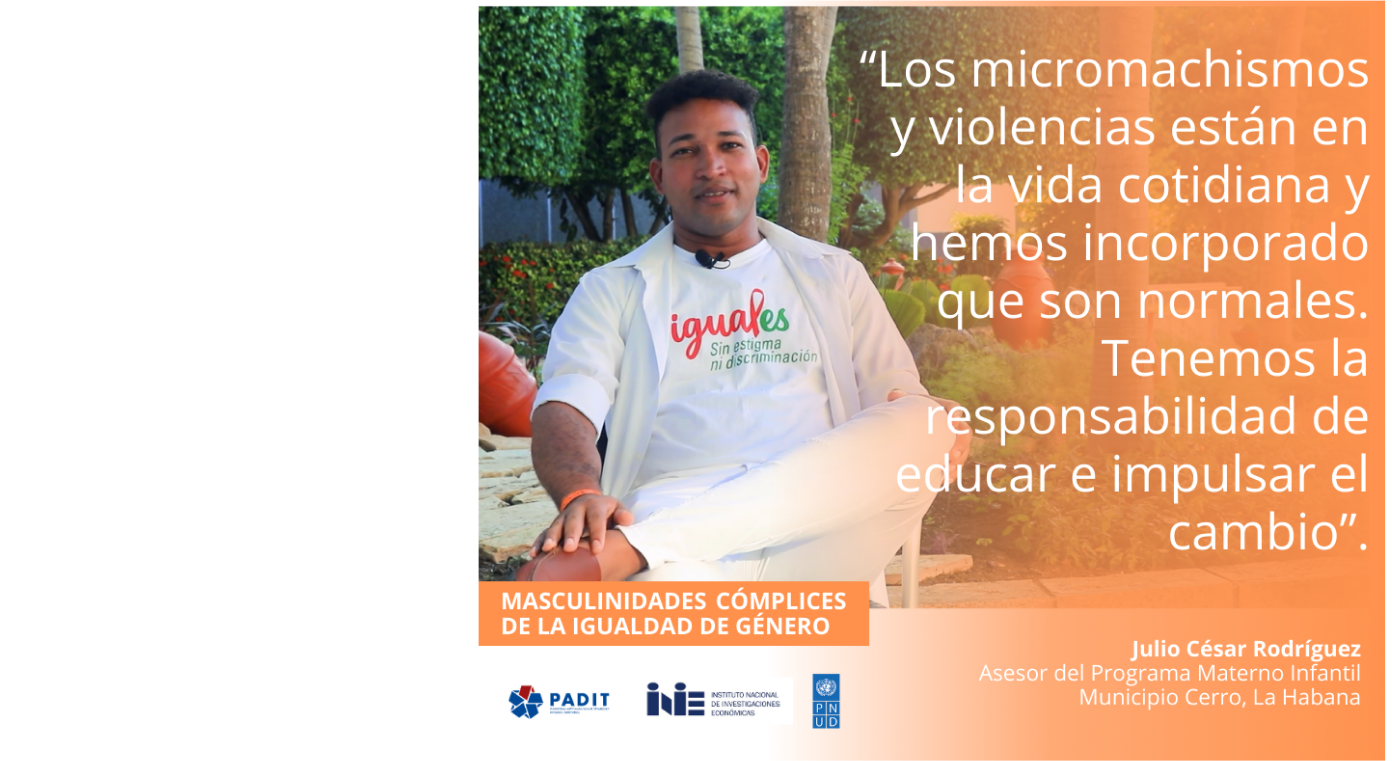The main achievement of the “Masculinities complicit in gender equality” project is its positioning as a project fundamental and innovative project (initiative, tool or strategic action) contributing to: the implementation of the National Programme for the Advancement of Women, the elimination of gender-based and family violence in local spaces, and the execution of municipal development strategies that are regularly updated and stand out for being gender-responsive.
In Cuba, UNDP implemented a project to transform sexist social norms and promote positive masculinities for gender equality, violence prevention and development.
Eliminating violence against women and girls is enshrined in the Constitution of the Republic of Cuba, the National Programme for the Advancement of Women, the Comprehensive Strategy for the Prevention of and Response to Gender-Based Violence and other internal legislative acts. To eliminate violence against women and girls and address the harm caused to survivors, there is a need to reinforce the joint actions of multiple actors (including men), strengthen partnerships and generate new practices.
To achieve this, UNDP’s Global Programme for Strengthening the Rule of Law, Human Rights, Justice and Security for Sustainable Peace and Development (the Global Programme) supported a multi-country innovative project, assigning men a leading role in advancing gender equality and considering local context to help dismantle patriarchal systems, challenge social norms, encourage transformation and generate impacts on governance and sustainable development. The project adopted an intersectional approach that focuses on changing power relations, champions empowerment and promotes human agency and the participation if both men and women. It contributes to the implementation of the National Programme for the Advancement of Women and of the gender responsive municipal development strategies. In particular, with the support of the Project, four municipal strategies for economic and social development in the Province of Havana prioritize gender equality and women empowerment more substantively.
UNDP organized training for 30 men selected for their leadership in sustainable development projects. The participants committed to carry out at least one action on positive masculinities (supportive, responsible, and non-violent) within the framework of their projects. According to the post-training survey, all the participants reported changes in attitudes and/or indicators of behavioural changes, and 23 men documented personal, family and work changes that happened in their lives after participating in the training.
In eight localities where the project participants reside, three group initiatives were designed and implemented to promote positive masculinities and to prevent and to address violence against women. As part of these initiatives, at least ten actions were carried out bringing visible changes and deconstructing harmful masculinities. These actions include the design of tools to understand how harmful masculinities hinder access to HIV-related health services, sensitizing local actors, creating spaces at workplaces to reflect on masculinities and integrating a course on masculinities in a postgraduate programme. The men who championed these initiatives reported significant personal changes in their families and communities, such as more inclusive attitudes and behaviours, better balance of work, leisure and family time and more responsible fatherhood. Furthermore, the men who took part in the UNDP-supported project, joined national and local institutions to promote gender equality on a policy level. In particular, municipal development strategies will be updated to include such priorities as gender equality and non-violence against women.
The project encouraged learning and gave an impetus for knowledge sharing within the region. Under the South-South cooperation, UNDP organized two virtual and two in-person exchanges between Cuba and Mexico on promising practices that transform harmful masculinities.
To raise public awareness and call for action on gender equality, UNDP produced communications materials, including postcards and videos that were shared in at least ten public spaces in Havana, as well during the 16 Days of Activism against Gender-Based Violence. These products were also presented at national and local UN and partner events.
